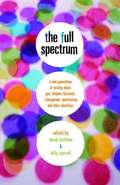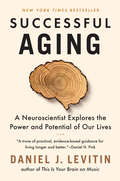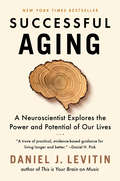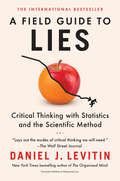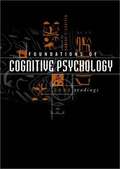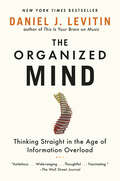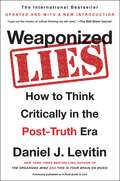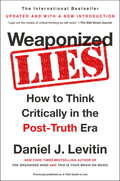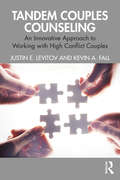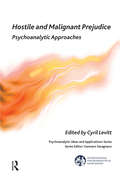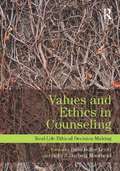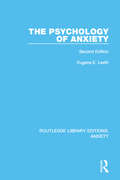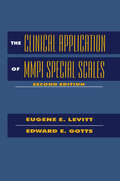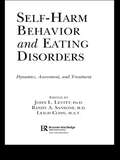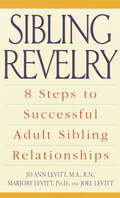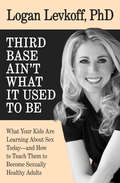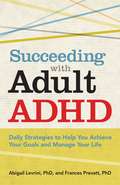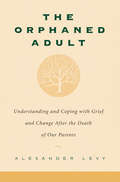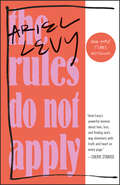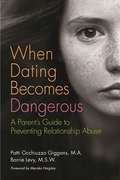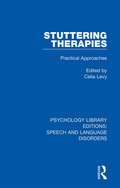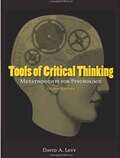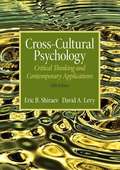- Table View
- List View
The Full Spectrum: A New Generation of Writing about Gay, Lesbian, Bisexual, Transgender, Questioning, and Other Identities
by David Levithan Billy MerrellTeens are more aware of sexuality and identity than ever, and they’re looking for answers and insights, as well as a community of others. In order to help create that community, YA authors David Levithan and Billy Merrell have collected original poems, essays, and stories by young adults in their teens and early 20s. The Full Spectrum includes a variety of writers—gay, lesbian, bisexual, straight, transitioning, and questioning—on a variety of subjects: coming out, family, friendship, religion/faith, first kisses, break-ups, and many others. <P><P> This one of a kind collection will, perhaps, help all readers see themselves and the world around them in ways they might never have imagined. We have partnered with the Gay, Lesbian and Straight Education Network (GLSEN) and a portion of the proceeds from this book will be donated to them.
Successful Aging: A Neuroscientist Explores the Power and Potential of Our Lives
by Daniel LevitinAuthor of the iconic bestsellers This Is Your Brain on Music and The Organized Mind, Daniel Levitin turns his keen insights to what happens in our brains as we age; why we should think about health span, not life span; and, based on a rigorous analysis of neuroscientific evidence, how you can make the most of your seventies, eighties, and nineties today, no matter how old you are now. <P><P>Successful Aging uses research from developmental neuroscience and the psychology of individual differences to show that sixty-plus years is a unique developmental stage that, like infancy or adolescence, has its own demands and distinct advantages. Levitin looks at the science behind what we can all learn from those who age joyously, as well as how to adapt our culture to take full advantage of older people's wisdom and experience. Throughout his exploration of what aging really means, Levitin reveals resilience strategies and practical, cognitive enhancing tricks everyone can do as they age. <P><P>This book is packed with accessible and discussable takeaways, providing great material for reading groups and media coverage. <P><P>Successful Aging inspires a powerful new approach to how readers think about our final decades, and it will revolutionize the way we plan for old age as individuals, family members, and citizens within a society where the average life expectancy continues to rise. <P><P><b>A New York Times Bestseller</b>
Successful Aging: A Neuroscientist Explores the Power and Potential of Our Lives
by Daniel LevitinAuthor of the iconic bestsellers This Is Your Brain on Music and The Organized Mind, Daniel Levitin turns his keen insights to what happens in our brains as we age, why we should think about health span, not life span, and, based on a rigorous analysis of neuroscientific evidence, what you can do to make the most of your seventies, eighties, and nineties today no matter how old you are now. Successful Aging uses research from developmental neuroscience and the psychology of individual differences to show that sixty-plus years is a unique developmental stage that, like infancy or adolescence, has its own demands and distinct advantages. Levitin looks at the science behind what we all can learn from those who age joyously, as well as how to adapt our culture to take full advantage of older people's wisdom and experience. Throughout his exploration of what aging really means, Levitin reveals resilience strategies and practical, cognitive enhancing tricks everyone should do as they age. The book is packed with accessible and discussable takeaways, providing great material for reading groups and media coverage. Successful Aging inspires a powerful new approach to how readers think about our final decades, and it will revolutionize the way we plan for old age as individuals, family members, and citizens within a society where the average life expectancy continues to rise.
A Field Guide to Lies: Critical Thinking in the Information Age
by Daniel J. LevitinFrom The New York Times bestselling author of THE ORGANIZED MIND and THIS IS YOUR BRAIN ON MUSIC, a primer to the critical thinking that is more necessary now than ever. We are bombarded with more information each day than our brains can process--especially in election season. It's raining bad data, half-truths, and even outright lies. New York Times bestselling author Daniel J. Levitin shows how to recognize misleading announcements, statistics, graphs, and written reports revealing the ways lying weasels can use them. It's becoming harder to separate the wheat from the digital chaff. How do we distinguish misinformation, pseudo-facts, distortions, and outright lies from reliable information? Levitin groups his field guide into two categories--statistical infomation and faulty arguments--ultimately showing how science is the bedrock of critical thinking. Infoliteracy means understanding that there are hierarchies of source quality and bias that variously distort our information feeds via every media channel, including social media. We may expect newspapers, bloggers, the government, and Wikipedia to be factually and logically correct, but they so often aren't. We need to think critically about the words and numbers we encounter if we want to be successful at work, at play, and in making the most of our lives. This means checking the plausibility and reasoning--not passively accepting information, repeating it, and making decisions based on it. Readers learn to avoid the extremes of passive gullibility and cynical rejection. Levitin's charming, entertaining, accessible guide can help anyone wake up to a whole lot of things that aren't so. And catch some lying weasels in their tracks!
A Field Guide to Lies: Critical Thinking with Statistics and the Scientific Method
by Daniel J. LevitinWinner of the National Business Book AwardFrom the New York Times bestselling author of The Organized Mind and This Is Your Brain on Music, a primer to the critical thinking that is more necessary now than ever We are bombarded with more information each day than our brains can process—especially in election season. It's raining bad data, half-truths, and even outright lies. New York Times bestselling author Daniel J. Levitin shows how to recognize misleading announcements, statistics, graphs, and written reports, revealing the ways lying weasels can use them. It's becoming harder to separate the wheat from the digital chaff. How do we distinguish misinformation, pseudo-facts, and distortions from reliable information? Levitin groups his field guide into two categories—statistical information and faulty arguments—ultimately showing how science is the bedrock of critical thinking. Infoliteracy means understanding that there are hierarchies of source quality and bias that variously distort our information feeds via every media channel, including social media. We may expect newspapers, bloggers, the government, and Wikipedia to be factually and logically correct, but they so often aren't. We need to think critically about the words and numbers we encounter if we want to be successful at work, at play, and in making the most of our lives. This means checking the plausibility and reasoning—not passively accepting information, repeating it, and making decisions based on it. Readers learn to avoid the extremes of passive gullibility and cynical rejection. Levitin's charming, entertaining, accessible guide can help anyone wake up to a whole lot of things that aren't so. And catch some weasels in their tracks!
Foundations of Cognitive Psychology: Core Readings
by Daniel J. LevitinScientists from many disciplines, including physics, chemistry, biology, and neuroscience, contribute to the study of cognition. Cognitive psychology, the science of the human mind and of how people process information, is at the core of empirical investigations into the nature of mind and thought. This anthology is based on the assumption that cognitive psychology is at heart empirical philosophy. Many of the core questions about thought, language, perception, memory, and knowledge of other people's minds were for centuries the domain of philosophy. The book begins with the philosophical foundations of inquiry into the nature of mind and thought, in particular the writings of Descartes, and then covers the principal topics of cognitive psychology including memory, attention, and decision making. The book organizes a daunting amount of information, underlining the essentials, while also introducing readers to the ambiguities and controversies of research. It is arranged thematically and includes many topics not typically taught in cognition courses, including human factors and ergonomics, evolutionary psychology, music cognition, and experimental design. The contributors include Daniel Dennett, Daniel Kahneman, Jay McClelland, Donald Norman, Michael Posner, Stephen Palmer, Eleanor Rosch, John Searle, Roger Shepard, and Anne Treisman.
The Organized Mind: Thinking Straight in the Age of Information Overload
by Daniel J. LevitinNew York Times bestselling author and neuroscientist Daniel J. Levitin shifts his keen insights from your brain on music to your brain in a sea of details.The information age is drowning us with an unprecedented deluge of data. At the same time, we’re expected to make more—and faster—decisions about our lives than ever before. No wonder, then, that the average American reports frequently losing car keys or reading glasses, missing appointments, and feeling worn out by the effort required just to keep up.But somehow some people become quite accomplished at managing information flow. In The Organized Mind, Daniel J. Levitin, PhD, uses the latest brain science to demonstrate how those people excel—and how readers can use their methods to regain a sense of mastery over the way they organize their homes, workplaces, and time.With lively, entertaining chapters on everything from the kitchen junk drawer to health care to executive office workflow, Levitin reveals how new research into the cognitive neuroscience of attention and memory can be applied to the challenges of our daily lives. This Is Your Brain on Music showed how to better play and appreciate music through an understanding of how the brain works. The Organized Mind shows how to navigate the churning flood of information in the twenty-first century with the same neuroscientific perspective.
Weaponized Lies: How to Think Critically in the Post-Truth Era
by Daniel J. LevitinPreviously Published as A Field Guide to Lies We're surrounded by fringe theories, fake news, and pseudo-facts. These lies are getting repeated. New York Times bestselling author Daniel Levitin shows how to disarm these socially devastating inventions and get the American mind back on track. Here are the fundamental lessons in critical thinking that we need to know and share now. Investigating numerical misinformation, Daniel Levitin shows how mishandled statistics and graphs can give a grossly distorted perspective and lead us to terrible decisions. Wordy arguments on the other hand can easily be persuasive as they drift away from the facts in an appealing yet misguided way. The steps we can take to better evaluate news, advertisements, and reports are clearly detailed. Ultimately, Levitin turns to what underlies our ability to determine if something is true or false: the scientific method. He grapples with the limits of what we can and cannot know. Case studies are offered to demonstrate the applications of logical thinking to quite varied settings, spanning courtroom testimony, medical decision making, magic, modern physics, and conspiracy theories. This urgently needed book enables us to avoid the extremes of passive gullibility and cynical rejection. As Levitin attests: Truth matters. A post-truth era is an era of willful irrationality, reversing all the great advances humankind has made. Euphemisms like "fringe theories," "extreme views," "alt truth," and even "fake news" can literally be dangerous. Let's call lies what they are and catch those making them in the act.
Weaponized Lies: How to Think Critically in the Post-Truth Era
by Daniel J. LevitinIt's raining fringe theories, fake news, and pseudo-facts. These lies are getting repeated. New York Times bestselling author Daniel Levitin shows how to disarm these socially devastating inventions and get the American mind back on track. Here are the fundamental lessons in critical thinking (previously published as A Field Guide to Lies) that we need to know and share now. Investigating numerical misinformation, Daniel Levitin shows how mishandled statistics and graphs can give a grossly distorted perspective and lead us to terrible decisions. Wordy arguments on the other hand can easily be persuasive as they drift away from the facts in an appealing yet misguided way. The steps we can take to better evaluate news, advertisements, and reports are clearly detailed. Ultimately, Levitin turns to what underlies our ability to determine if something is true or false: the scientific method. He grapples with the limits of what we can and cannot know. Case studies are offered to demonstrate the applications of logical thinking to quite varied settings, spanning courtroom testimony, medical decision making, magic, modern physics, and conspiracy theories.This urgently needed book enables us to avoid the extremes of passive gullibility and cynical rejection. As Levitin attests: Truth matters. A post-truth era is an era of willful irrationality, reversing all the great advances humankind has made. Euphemisms like "fringe theories," "extreme views," "alt truth," and even "fake news" can literally be dangerous. Let's call lies what they are and catch those making them in the act.
Tandem Couples Counseling: An Innovative Approach to Working with High Conflict Couples
by Justin E. Levitov Kevin A. FallThis book introduces the protocol known as Tandem Couples Counseling (TCC), a ground-breaking model that provides sound theoretical explanations and interventions that address the inherent difficulties in traditional forms of couples counseling. Tandem Couples Counseling: An Innovative Approach to Working with High Conflict Couples synthesizes the research literature from the fields of couples counseling and group work into a compelling therapeutic approach. Extensive case examples illuminate the dynamics and skills of the approach. Assessment processes and rich descriptions of the treatment protocols are included, enabling integration, and understanding of how to implement this approach with clients as well as immediately work to improve the connection in existing co-therapy arrangements. The text is an essential guide for counseling professionals on how to build, maintain, and use the co-therapy relationship as an agent of change for high-conflict couples.
Hostile and Malignant Prejudice: Psychoanalytic Approaches (The International Psychoanalytical Association Psychoanalytic Ideas and Applications Series)
by Cyril LevittHostile and Malignant Prejudice: Psychoanalytic Approaches represents the leading edge of work in the field by members of the International Psychoanalytical Association's Committee on Prejudice (Including Anti-Semitism), psychoanalysts who hail from Belgium, Brazil, Canada, Germany, Peru, Sweden, the United States, and Uruguay. It pursues the issues surrounding hostile and malignant prejudice as defined in the first chapter by Henri Parens, whose path-breaking work over four generations with children and their mothers uncovered the sources of aggression and prejudice on a scale from jocular slurs to murderous genocide. One chapter examines the effects of Latin America's colonial past on the psychic development of a 'mixed race' young man whose analysis implicates a major racial and social divide in the heart of his society. In another chapter we learn of the identity conflicts of children who were separated from their parents during the Holocaust and hidden or 'hidden in plain sight' by adopting a Christian persona.
Values and Ethics in Counseling: Real-Life Ethical Decision Making
by Dana Heller Levitt Holly J. Hartwig MoorheadMany counselors learn about ethics in graduate school by applying formal, step-by-step ethical decision-making models that require counselors to be aware of their values and refrain from imposing personal values that might harm clients. However, in the real world, counselors often make split-second ethical decisions based upon personal values. Values and Ethics in Counseling illustrates the ways in which ethical decisions are values—but more than that, it guides counselors through the process of examining their own values and analyzing how these values impact ethical decision making. Each chapter presents ethical decision making as what it is: a very personal, values-laden process, one that is most effectively illustrated through the real-life stories of counselors at various stages of professional development—from interns to seasoned clinicians—who made value-based decisions. Each story is followed by commentary from the author as well as analysis from the editors to contextualize the material and encourage reflection.
The Psychology of Anxiety: Second Edition (Routledge Library Editions: Anxiety #2)
by Eugene E. LevittOriginally published in 1980, this title builds on the first edition which provided a comprehensive review and evaluation of theory and research on anxiety at the time. In the time between publications there had been many studies of anxiety phenomena and substantial progress in our conceptual understanding of the nature of anxiety and its measurement. The author incorporates those advances in empirical knowledge and new theoretical insights into this second edition. The most important and well-documented empirical findings in anxiety research are emphasized throughout the book, but attention is also called to unresolved theoretical issues and problem areas of the time where there was urgent need for additional research. Although much research has been done since, the authoritative analysis of anxiety phenomena that is presented in this book will still be of interest to medical, social and behavioral scientists and personality theorists, and to mental health workers of all disciplines who are engaged in clinical work with emotionally disturbed persons.
The Clinical Application of MMPI Special Scales
by Eugene E. Levitt Edward E. GottsThis second edition continues to present the following special features of its highly successful predecessor: * an analysis of the major partitionings of the MMPI into special scales in terms of their clinical usefulness, resulting in the selection of those scales that most discriminatingly and non-redundantly represent the core psychological traits and qualities captured by the MMPI; * a number of individually developed scales that tap into additional aspects of validity, psychopathology, and adjustment and personality; * the Indiana Special Scales which sample additional areas that were not as well identified or delineated by prior scale development; * a critique of the foregoing selections in light of the extant MMPI literature (which this second edition further expands up to the current time) and of a major investigation at the Indiana University Medical School of the conjoint use of special scales; * a critique of the shortcomings of high-point codes; * a detailed, categorized listing of the most useful scales in empirical clusters based on their established intercorrelations such that not only scale elevations but also interrelations (and the departures from the expected) of scales become clinically interpretable; * an exploration of the interrelationships between Rorschach and MMPI variables, leading to complementary use of these two instruments. This second edition also takes into account the development of MMPI-2 and the status of its new special scales vis-a-vis the established scales derived from the original MMPI. In so doing, it indicates why the original scales continue to offer substantial advantages over the MMPI-2 scales. It further examines changes in the nosology of personality disorders and proposes special scale markers for these disorders as they have been clarified progressively through DSM-IV. This volume offers the MMPI user a library of psychological report statements based on special scale interpretation, with recommended score ranges and cutting points for particular inferences. These latter features appear together as an appendix styled as "The Human Computer." Unlike the typical computer-generated report, this appendix makes all decision rules explicit, thereby permitting the user to use the library of statements with full knowledge of their applicability. By retaining the element of clinical judgment -- the human dimension of inference -- the user is enabled to better integrate MMPI special scale findings with data from other sources while in the process of crafting the report. All of these new features are accompanied by applicable literature citations.
Illegal Peace in Africa: An Inquiry into the Legality of Power Sharing with Warlords, Rebels, and Junta
by Jeremy I. LevittAfrican states have become testing grounds for Western conflict-resolution experiments, particularly power-sharing agreements, supposedly intended to end deadly conflict, secure peace, and build democracy in divided societies. This volume examines the legal and political efficacy of transitional political power-sharing between democratically constituted governments and the African warlords, rebels, or junta that seek to violently unseat them. What role does law indicate for itself to play in informing, shaping, and regulating peace agreements? This book addresses this question and others through the prism of three West African case studies: Liberia, Sierra Leone, and Guinea-Bissau. It applies the Neo-Kadeshean Model of analysis and offers a framework for a 'Law on Power-sharing. ' In a field dominated by political scientists, and drawing from ancient and contemporary international law, this book represents the first substantive legal critique of the law, practice, and politics of power sharing.
Self-Harm Behavior and Eating Disorders: Dynamics, Assessment, and Treatment
by John L. Levitt Ph. D. Randy A. Sansone Leigh Cohn M. A. T.The number of eating disorders patients presenting with symptoms of self-harm is growing quickly, and yet there is surprisingly little known about this unique population. Self-Harm Behavior and Eating Disorders explores the prevalent but largely uncharted relationship between self-injury behaviors and eating disorders symptoms. In the first major book to focus on this area, a renowned group of international scholars and practitioners addresses the subject from a variety of theoretical and practical perspectives. The book is categorized into sections covering epidemiology, psychodynamics, assessment, and a final section covering potential treatment options, including dialectical behavioral therapy, cognitive therapy, interventions strategies, group therapy, and pharmacological approaches. This unrivaled collection of case studies, theoretical exploration, and practical application forms a benchmark for the field, and offers a stepping-stone for new research and innovative treatment strategies. In an area with little available information, previously spread out among diffuse sources, this volume represents the state-of-the-field resource for anyone working with complex eating disorders patients.
Sibling Revelry
by Marjory Levitt Joann LevittExperience the miracle of healing with a unique step-by-step program for enhancing adult sibling relationships -- created by siblings for siblingsMuch has been written about the relationships of parents and children. But the unsung chord in all of our adult relationships, professional and personal, is rooted in the sibling connection. In this extraordinary book based on their Sibling Revelry workshops, authors -- and siblings -- Jo Ann, Marjory, and Joel Levitt re-create the seminars that have helped many strengthen the bonds of their adult sibling relationships. In eight clearly focused steps, with added material for home study, the authors show how to transform sibling rivalry into extraordinary, nurturing adult bonds that will enhance all other relationships in your life. Now you can regain the closeness you and your siblings once shared, heal old wounds, and pave the way to a happier, healthier future. Learn how to:* Define your relationship -- Unload the myths of your shared past...and discover who you are to each other now* Witness the effect of old rivalries -- And use them as a springboard to great adult relationships* Envision a new future -- Break the habits that hold your relationship firmly in place...and create a powerful new vision for yourself and your family* Explore new modes of contact -- Examine the "role" you play in your family and free yourself from damaging old patterns* Heal wounds and misunderstandings -- Resolve old conflicts as you sort through old issues of fear, anger, guilt, and hurt* Invent new family legends -- Uncover the myths and legends that have shaped your relationship...then create new ones* Make room for differences -- Clear out "sibling clutter" and accept your siblings exactly as they are* Honor your strengths -- Celebrate the positive qualities each sibling brings to the relationship...and set the stage for a lifelong connectionFrom the Trade Paperback edition.
Third Base Ain't What It Used to Be: What Your Kids Are Learning About Sex Today—and How to Teach Them to Become Sexually Healthy Adults
by Logan LevkoffRenowned sexologist Dr. Logan Levkoff&’s groundbreaking parents&’ guide for discussing sex with today&’s teenagers&“When it comes to sex, most of us are clueless,&” writes sexologist and sexuality educator Dr. Logan Levkoff. &“Yes, we know how to have sex, but we have no idea how to teach our kids about it.&” With the cultural discussion surrounding sex growing increasingly charged, Levkoff&’s insightful how-to book equips parents with the tools and perspectives necessary for navigating this complicated landscape and talking about sex with their children in a healthy and productive way. Covering everything from anatomy and puberty to pregnancy and sexually transmitted diseases, Levkoff offers the facts and candid advice that parents can use to bring their values and experiences into the discussion on sexuality.
Succeeding With Adult ADHD: Daily Strategies to Help You Achieve Your Goals and Manage Your Life
by Abigail Levrini Frances PrevattIf you've been diagnosed with adult ADHD, you are well-acquainted with the procrastination, lack of motivation, and muddled time management that can thwart your best efforts to achieve. You may find yourself constantly distracted, or fear you're about to forget something important. Or you may firmly set a goal for yourself, only to abandon it later in frustration.<p><p> This book will help you overcome the challenges of adult ADHD and find fulfillment in taking the practical steps needed to achieve your goals.<p> In easy-to-master lessons, ADHD specialists Abigail Levrini and Frances Prevatt offer realistic, proven, and unique daily strategies to help you succeed with adult ADHD. Each chapter contains checklists, worksheets, and Start Reading/Stop Reading reminders to help you break down large jobs, such as organizing your space, studying effectively, or listening to your partner, into manageable tasks. You'll learn how to identify the right treatments and support for your lifestyle and find strategies for handling emotional roadblocks such as stress, anxiety, depression, and fear of failure. <p> This dynamic and interactive text will become an indispensable aid in helping you translate your goals into realities to succeed with adult ADHD.
The Orphaned Adult: Understanding and Coping with Grief and Change After the Death of Our Parents
by Alexander LevyLosing our parents when we ourselves are adults is in the natural order of things, a rite of passage into true adulthood. But whether we lose them suddenly or after a prolonged illness, and whether we were close to or estranged from them, this passage proves inevitably more difficult than we thought it would be. A much-needed and knowledgeable discussion of this adult phenomenon,The Orphaned Adult validates the wide array of disorienting emotions that can accompany the death of our parents by sharing both the author's heart-felt experience of loss and the moving stories of countless adults who have shared their losses with him. From the recognition of our own mortality and sudden child-like sorrow to a sometimes-subtle change in identity or shift of roles in the surviving family,The Orphaned Adult guides readers through the storm of change this passage brings and anchors them with its compassionate and reassuring wisdom.
The Rules Do Not Apply: A Memoir
by Ariel LevyA gorgeous memoir about a woman overcoming dramatic loss and finding reinvention—for readers of Cheryl Strayed and Joan Didion When thirty-eight-year-old New Yorker writer Ariel Levy left for a reporting trip to Mongolia in 2012, she was pregnant, married, financially secure, and successful on her own terms. A month later, none of that was true. Levy picks you up and hurls you through the story of how she built an unconventional life and then watched it fall apart with astonishing speed. Like much of her generation, she was raised to resist traditional rules—about work, about love, and about womanhood. “I wanted what we all want: everything. We want a mate who feels like family and a lover who is exotic, surprising. We want to be youthful adventurers and middle-aged mothers. We want intimacy and autonomy, safety and stimulation, reassurance and novelty, coziness and thrills. But we can’t have it all.” In this profound and beautiful memoir, Levy chronicles the adventure and heartbreak of being “a woman who is free to do whatever she chooses.” Her own story of resilience becomes an unforgettable portrait of the shifting forces in our culture, of what has changed—and of what is eternal. Advance praise for The Rules Do Not Apply“I read The Rules Do Not Apply in one long, rapt sitting. Unflinching and intimate, wrenching and revelatory, Ariel Levy’s powerful memoir about love, loss, and finding one’s way shimmers with truth and heart on every page.”—Cheryl Strayed “Every deep feeling a human is capable of will be shaken loose by this profound book. Ariel Levy has taken grief and made art out of it.”—David Sedaris “Ariel Levy is a writer of uncompromising honesty, remarkable clarity, and surprising humor gathered from the wreckage of tragedy. Her account of life doing its darnedest to topple her, and her refusal to be knocked down, will leave you shaken and inspired. I am the better for having read this book.”—Lena Dunham “A great memoir is not a trip through someone else’s life but a series of long looks into your own. Ariel Levy’s book—grieving, hopeful, painful, funny—is that.”—Amy Bloom “It’s become a truism that feminists are living out our mothers’ unlived lives. But Ariel Levy seems to be living out the unlived lives of an entire generation of women, simultaneously. Free to do whatever she chooses, she chooses everything. While reinventing work, marriage, family, pregnancy, sex, and divorce for herself from the ground up, Levy experiences devastating loss. And she recounts it all here with searing intimacy and an unsentimental yet openhearted rigor.”—Alison Bechdel “The Rules Do Not Apply is heartbreaking, brilliant, and disarming, the kind of book that may change you. Ariel Levy writes with a beauty that is ferociously honest and with the fervor of an explorer. No one else has written so insightfully about the current legacy of feminism’s ‘lavish gift’ of freedom. Levy has a voice unlike any other. This is a devastating and inspired book.”—René Steinke
When Dating Becomes Dangerous: A Parent's Guide to Preventing Relationship Abuse
by Barrie Levy Mariska Hargitay Patricia Occhiuzzo GiggansSend your teenager out into the dating world equipped with the knowledge, strength, and communication skills to walk away from abusive relationships--and to develop healthy ones.Send your teenager out into the dating world equipped with the knowledge, strength, and communication skills to walk away from relationships that are abusive--and to develop healthy ones.As our kids grow older and they start asserting their independence, we worry about their safety and well being. And when it comes to dating and intimacy, it is hard to know how to protect them when a would-be gentle relationship turns violent, be it verbally or physically. The fact is that as many as one in four high school and college-aged youth are affected by an abusive relationship. So, how do we as parents protect our kids from becoming another statistic? And how do we give them the self-assurance to leave a dangerous situation?In this informative guide for parents, Barry Levy and Patricia Occhiuzzo Giggans, both experts in relationship violence, draw on their professional experience to provide guidance for getting through the relationship challenges kids, both gay and straight, face today. Here you'll discover: How to give your teen the skills to encourage healthy relationshipsWhy many teenagers hide their abusive relationshipHow to recognize the warning signs of dating violence, including cyber abuseWhat to do if your child is the abuser, and when girls are the perpetrator of abuse
Stuttering Therapies: Practical Approaches (Psychology Library Editions: Speech and Language Disorders)
by Celia LevyOriginally published in 1987, this book presented new ideas on the treatment of stuttering, by leading authorities within Britain at the time. There are chapters on children and adolescents, as well as on adults. In each chapter the author describes the therapeutic approach, how it fits into general views on the nature of stuttering, the clients for which it is appropriate, and possible methods of evaluation. The book is aimed at speech therapists and psychologists and provided an important up-date of the subject for practitioners.
Tools Of Critical Thinking
by David A. LevyThis innovative text is designed to improve thinking skills through the application of 30 critical thinking principles—Metathoughts. These specialized tools and techniques are useful for approaching all forms of study, inquiry, and problem solving. Levy applies Metathoughts to a diverse array of issues in contemporary clinical, social, and cross-cultural psychology: identifying strengths and weaknesses in various schools of thought, defining and explaining psychological phenomena, evaluating the accuracy and usefulness of research studies, reducing logical flaws and personal biases, and improving the search for creative solutions. The Metathoughts are brought to life with practical examples, clinical vignettes, illustrations, anecdotes, thought-provoking exercises, useful antidotes, and contemporary social problems and issues. Tools of Critical Thinking, 2/E is primarily suited as a core textbook for courses in critical thinking/problem solving, or makes an ideal supplement in a wide variety of undergraduate and graduate psychology courses, including introductory psychology, abnormal psychology (psychopathology), cross-cultural psychology, theories and methods of psychotherapy, research methods and design, theories of personality, clinical practicum, and contemporary problems and issues in psychology.
Cross-Cultural Psychology: Critical Thinking and Contemporary Applications, Fifth Edition
by David A. Levy Eric B. ShiraevDynamic author team provides comprehensive overview with focus on critical-thinking. The fifth edition continues a heavy focus on applying critical thinking framework in examining, analyzing, and evaluating psychological data. With significant rewriting and additional new topics as well as updated references on new research, Cross-Cultural Psychology keeps pace with the rapidly changing conditions of modern times. The dynamic team from two different worlds bring a unique set of experiences and perceptions in writing this book. Eric Shiraev was raised in the city of Leningrad in the former Soviet Union and David Levy is from Southern California,. Between the diverse backgrounds and having each author spent an extended period teaching in the other's home country, the authors provide a comprehensive review of theories and research in cross-cultural psychology. Learning Goals Upon completing this book, readers should be able to: Better understand the field of cross-cultural psychology Understand contemporary theories and research in cross-cultural psychology Use critical thinking to examine, analyze, and evaluate the field of cross-cultural psychology Assist current and future practitioners from a wide variety of fields and services
